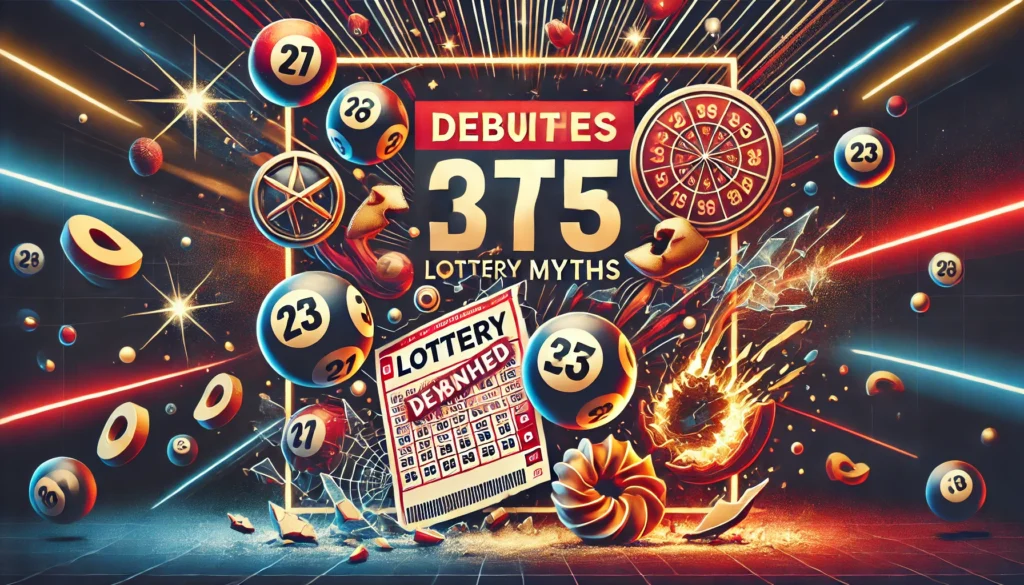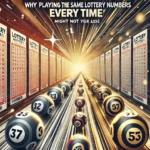Introduction
Winning the lottery is a dream shared by millions, promising instant wealth and a life of luxury. This dream has given rise to countless myths and misconceptions about how to improve your chances of winning. From choosing lucky numbers to playing at certain times, many people believe in strategies that supposedly boost their odds. But how much of this is fact, and how much is fiction? In this article, we’ll debunk the most common myths about winning the lottery and explain why luck is the only real factor in the game.
1. Myth: Certain Numbers Are Luckier Than Others
Many players believe that some numbers are inherently luckier or more likely to be drawn.
- The Belief: Numbers like 7 or combinations based on birthdays and anniversaries are considered “lucky.”
- The Reality: Lottery draws are completely random. Every number has an equal chance of being selected in every draw.
- Why It’s Popular: People like to assign personal or cultural meaning to numbers, which makes playing feel more hopeful.
Truth: No number is luckier than another. Whether you choose random numbers or personal favorites, your odds remain the same.
2. Myth: Buying More Tickets Guarantees a Win
It’s logical to think that buying more tickets increases your chances of winning—but it doesn’t guarantee anything.
- The Belief: Purchasing more tickets will eventually lead to a jackpot.
- The Reality: While more tickets technically increase your odds, the improvement is negligible due to the astronomical odds of winning.
- Example: In a lottery with 1 in 300 million odds, buying 10 tickets only slightly improves your odds to 10 in 300 million.
Truth: Buying more tickets improves your odds very slightly but doesn’t guarantee a win. Play within your budget and avoid chasing unlikely wins.
3. Myth: Past Winning Numbers Influence Future Draws
Some players analyze past draws to find patterns, believing certain numbers are “due” to win.
- The Belief: If certain numbers haven’t been drawn in a while, they’re more likely to appear next.
- The Reality: Lottery draws are independent events. Past results have no effect on future outcomes.
- Gambler’s Fallacy: This is the false belief that past random events influence future ones.
Truth: Every draw is random. Previous outcomes have no bearing on future results.
4. Myth: Quick Picks Are Less Likely to Win
Some players avoid using the Quick Pick feature, believing that manually chosen numbers are better.
- The Belief: Randomly generated Quick Pick numbers are less likely to win than self-selected numbers.
- The Reality: Most jackpot winners actually use Quick Picks because they are the most common method of selecting numbers.
- Equal Odds: Whether you pick your own numbers or let a computer choose, the odds are exactly the same.
Truth: Quick Picks have just as much chance of winning as manually chosen numbers.
5. Myth: Playing the Lottery at Certain Times Improves Your Odds
Some believe that buying tickets at specific times can improve their chances.
- The Belief: Buying tickets late at night or on certain days increases the odds of winning.
- The Reality: The timing of when you purchase a ticket has no impact on the random draw.
- Psychological Influence: People link personal routines or superstitions to luck.
Truth: The time or day you buy a ticket does not influence your chances of winning.
6. Myth: You’re More Likely to Win if You Play Every Draw
Consistency is often thought to be a strategy for winning the lottery.
- The Belief: Regularly playing every draw increases your chance of winning.
- The Reality: While playing more often gives you more entries, it doesn’t improve the odds for any single draw.
- Risk of Overspending: This belief can lead to spending more than intended without improving your chances.
Truth: Playing more frequently doesn’t change the odds. Only your total number of tickets influences your chance, and each draw is still random.
7. Myth: Jackpot Winners Are Always Broke or Unhappy
There’s a popular belief that lottery winners often lose their money and end up miserable.
- The Belief: Most lottery winners squander their wealth and become unhappy.
- The Reality: While some winners mismanage their money, many invest wisely and enjoy long-term financial stability.
- Media Bias: Stories of winners losing it all get more media attention than those who manage their wealth responsibly.
Truth: Winning the lottery doesn’t automatically lead to happiness or financial ruin—it depends on how winners handle their money.
8. Myth: Certain Stores Sell More Winning Tickets
Many players think that some locations are luckier than others for buying tickets.
- The Belief: Some stores or cities sell more winning tickets than others.
- The Reality: Stores that sell more tickets naturally produce more winners due to volume, not luck.
- Random Distribution: Winning tickets are distributed randomly by the lottery system.
Truth: No store is luckier than another. More winners come from high-traffic stores simply because they sell more tickets.
9. Myth: Joining a Lottery Pool Guarantees Better Odds
Lottery pools or syndicates are often seen as a surefire way to win.
- The Belief: Group play significantly improves your odds of winning.
- The Reality: While pools increase the number of tickets you play, any winnings must be split among members.
- Risk of Disputes: Poorly managed pools can lead to disputes over prize distribution.
Truth: Lottery pools increase your chances slightly but reduce the payout if you win.
10. Myth: There Are Systems to Beat the Lottery
Many companies sell systems or formulas promising to predict winning numbers.
- The Belief: Certain systems can predict winning numbers or improve odds.
- The Reality: No system can predict or manipulate random draws. These systems are often scams or based on flawed logic.
- RNG Technology: Lotteries use secure systems to ensure draws are random and fair.
Truth: No system, strategy, or tool can beat the randomness of the lottery.
Conclusion
The lottery is a game of pure chance. While myths and misconceptions about how to win persist, no strategy or superstition can alter the odds. Beliefs about lucky numbers, special times to buy tickets, or certain stores being “luckier” are all rooted in misunderstanding how lotteries work.
The best approach is to play for fun and within your means. Platforms like Dewakoin make playing accessible and secure, but remember that winning is entirely random. Focus on enjoying the experience rather than chasing myths, and always play responsibly.
In the end, winning the lottery is about luck—not strategy.


